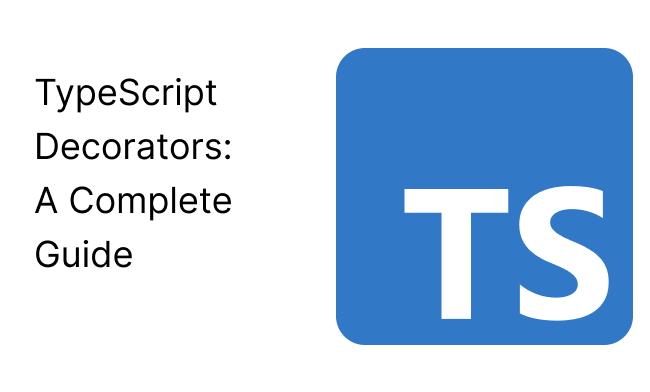When to Use Decorators in JavaScript: A Simple Guide

Decorators in JavaScript offer an elegant way to modify or enhance the behavior of classes, methods, or properties at design time. These powerful features, introduced in TypeScript before being adopted in JavaScript, can significantly streamline how you manage code modularity and reusability. Here's when and how you should consider using decorators in your JavaScript projects:
Understanding Decorators

Before diving into when to use decorators, it’s important to understand what they are:
- Class Decorators: Modify class declarations.
- Method Decorators: Modify methods within a class.
- Property Decorators: Modify class properties.
- Parameter Decorators: Modify class parameters.
Decorators are called when the class is defined, before the code is executed, allowing for modification of the class behavior at compile-time.
When to Use Decorators

Here are specific scenarios where decorators shine:
1. Cross-Cutting Concerns

When your application needs to apply common functionality across multiple methods or classes, decorators are ideal. This could include:
- Logging: Decorate methods to log the start and end of their execution.
- Authentication: Ensure users are authenticated before method execution.
- Performance Metrics: Measure the time taken by methods to execute.
📝 Note: Decorators for logging can help in debugging and monitoring application health.
2. Aspect-Oriented Programming (AOP)

Decorators allow for AOP where you focus on core business logic, while the non-core functionality can be applied uniformly with decorators:
- Retry Logic: Automatically retry failed method calls.
- Exception Handling: Catch and handle exceptions uniformly across methods.
3. Modifying Class or Object Behavior

When you need to alter class behavior or properties:
- State Management: Use decorators to manage state or provide reactive updates.
- Inheritance Control: Enhance inheritance patterns or enforce interfaces.
4. Framework Integrations

Many modern frameworks like Angular or MobX utilize decorators to simplify integration with their ecosystems:
- Dependency Injection: Use decorators to inject dependencies into class constructors.
- Component Metadata: Decorate components to define their properties, services, or lifecycle hooks.
5. Enhancing Data Validation

When working with forms or data models, decorators can provide:
- Validation Decorators: Apply validation rules to properties or methods.
- Data Transformation: Automatically convert or format data.
| Scenario | Decorator Example |
|---|---|
| Logging Method Execution | @logDecorator |
| Auth Check | @ensureAuthenticated |
| Performance Profiling | @measureExecutionTime |

Key Considerations

- Performance: Excessive use of decorators might impact performance due to their runtime overhead.
- Debugging: Stack traces can be cluttered with decorators, making debugging harder.
- Readability: Overuse can obscure the original intent of classes or methods.
⚠️ Note: Use decorators judiciously to avoid overcomplicating your codebase.
Summary

Decorators in JavaScript provide a clean, modular way to separate cross-cutting concerns, implement AOP, enhance class behaviors, integrate with frameworks, and manage data validation. By incorporating decorators thoughtfully, you can simplify code maintenance, enhance readability, and improve the reusability of your code. However, remember to balance the use of decorators with performance considerations and code clarity to keep your application scalable and maintainable.
What is the main benefit of using decorators in JavaScript?

+
The main benefit of using decorators in JavaScript is their ability to modify or enhance classes, methods, or properties without changing the source code directly, promoting code reuse and modularity.
Are decorators supported in all JavaScript environments?

+
No, decorators are part of the stage 3 proposal for JavaScript and are not yet included in the ECMAScript standard. They are supported in TypeScript and require polyfills or transpilation in modern JavaScript environments.
How do decorators affect performance?

+
Decorators introduce a layer of indirection which can result in slight performance degradation due to additional function calls or wrappers. However, the performance hit is usually negligible in modern applications.



